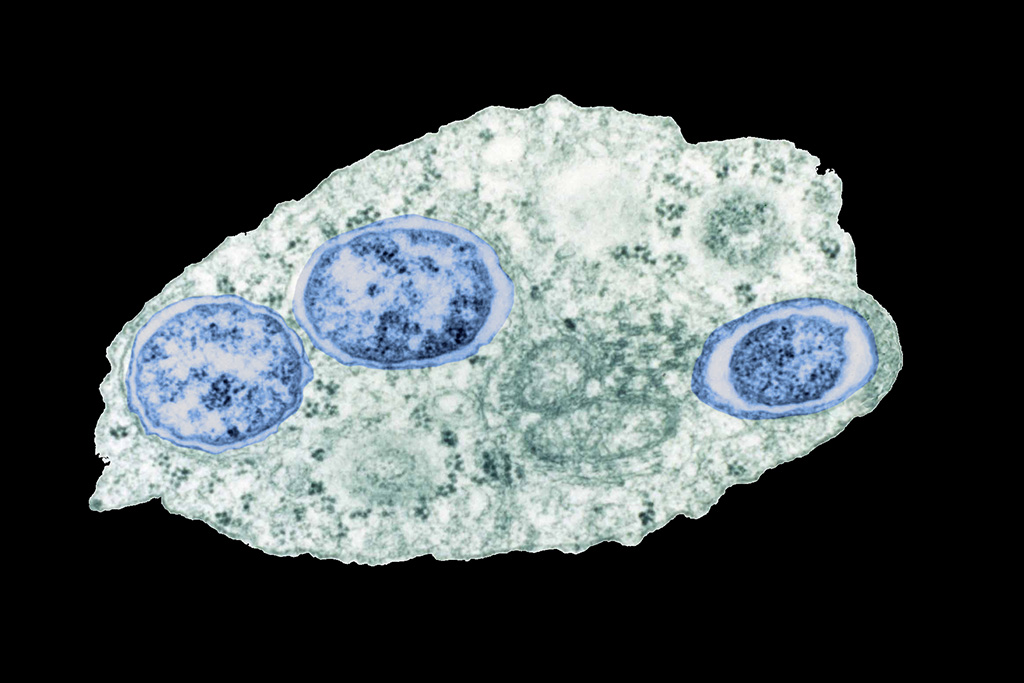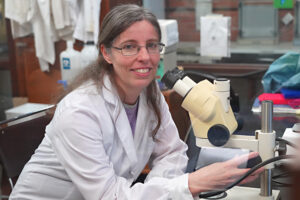Flight of Wolbachia: nexciencia.exactas.uba.ar

Wolbachia He is a true biology star. It is the most widespread, diverse and versatile bacterium on the planet. It is accused of changing the sex of certain insects until they become pests. But it can also reduce the spread of viruses such as dengue when the mosquitoes that transmit it become infected with it.
“We discovered that Wolbachia Blocks the growth of viruses such as dengue, chikungunya and Zika in mosquitoes Aedes aegypti“, they point out from World Mosquito Control Program (WMP), which implements the initiative in 14 countries. “We released mosquitoes from Wolbachia to protect almost 11 million people (June 2023),” the organization adds.
The first experiments were tested in Australia, and then on different continents. In South America, mosquitoes infected with bacteria have already been released into the wild. Wolbachiato stop the infection. “This population replacement technique has reduced the prevalence of dengue fever. In Colombia and Brazil this has been achieved, but several obstacles need to be overcome,” says Marcela Rodriguero, PhD in Biology, from the Department of Ecology, Genetics and Evolution of the Faculty of Exact and Natural Sciences of the University of Buenos Aires (IEGEBA, UBA).-CONICET).
In South America, mosquitoes infected with bacteria have already been released into the wild. Wolbachiato stop the infection in Colombia and Brazil.
She, along with other researchers, studied in different parts of Argentina whether certain species of mosquitoes present these bacteria in a natural state, data that could be used in the future in the country or “considered when developing infection-based control strategies Wolbachia» indicates a recent publication Parasitological studies.
Breed mosquitoes, artificially infect them with a special strain Wolbachia The method, called gold, which immunizes against certain viruses and releases those insects into specific areas in different parts of cities, “is still an expensive method, so a lot of research needs to be done beforehand,” says Rodriguero, the CONICET researcher.
Maximum pandemic
Rodriguero has been studying for twenty years. Wolbachiaon suspicion of changing the sexuality of some weevils. Change them to such an extent that in some areas there are only asexual females left, so efficient at reproducing that they have become agricultural pests.
Wolbachia has been present in insect populations for millions of years, and there is no evidence that it causes harm to humans or other vertebrates.
She and her team know they are facing the man responsible for an epic epidemic. “Wolbachia “This is the largest pandemic in the history of life because it is present in 40 to 60 percent of insects, which are the most successful animals in the world, as evidenced by their numbers,” the scientist says.
Its abundant existence has a long history. In this sense, the expert notes: “Wolbachia “It has been present in insect populations for millions of years, and there is no evidence that it causes harm to humans or other vertebrates.”

Marcela Rodriguero. Photo: Louise Cavalcante.
Even though it is known, it is necessary to know what is happening in the country with this bacterium due to its presence in mosquitoes flying around the country. The work carried out by a team of Argentine scientists is aimed at this goal.
“A person,” he notes, “must know a little about reality in order to be able to implement this technique, to know what is happening in different parts of the country in order to be able to realize rational liberation.”
This method involves very conscious work with the community, which must, for a time, accept the fact that it becomes the recipient of an excess of mosquitoes.
The work is hard. “There are many obstacles to overcome. In Brazil, he gives an example, after the release of an Australian line of mosquitoes infected with this bacterium, it was noticed that they died because they did not tolerate the local insecticides. So they had to crossbreed Brazilian mosquitoes with Australian mosquitoes to pass on the genetic background so they could resist and survive.”
Infecting mosquitoes with the golden strain of this bacterium in laboratories before spreading them to different areas of the city requires not only time and effort, but also a challenge for society. “This method involves very conscious work with the community, which has to accept for a while that it becomes the recipient of an excess of mosquitoes. And that’s an excessive risk because you’re faced with circulating females that will bite until the supply starts working,” he says.
In this sense, remember that in Brazil we spent two years before liberation working with society. “In many cases, surveys are being conducted, we’re talking to the media, and regulatory issues need to be addressed because since this is all new, it’s not even very clear which entities should allow these releases,” he adds.
Before taking these steps, the team attempted to describe the panorama shown at various locations in Argentina regarding the natural presence of this bacterium in certain species of mosquitoes. “This shows the importance of basic science. Without this, we will not be able to apply the design because the biological problems are so complex that they vary from place to place. And what worked in Brazil may not work here. We must first know what we have and then come up with a moderately successful proposal,” he concludes.
Team
Aylen Chuchuy, Marcela Rodriguero, Ana Alonso, Marina Stein and Maria Victoria Micheli carried out the work published in Parasitological studies. They belong to different academic organizations: Center for Parasitological and Vector Research, CONICET, La Plata; Department of Ecology, Genetics and Evolution, Faculty of Exact and Natural Sciences, University of Buenos Aires; Institute of Ecology, Genetics and Evolution (IEGEBA), University of Buenos Aires, CONICET; Laboratory of Entomology, Institute of Regional Medicine, National University of the North-East, CONICET and Institute of Alternative Energy Research, National University of Salta, CONICET (INENCO-CONICET). This work was part of Ailene Chuchuy’s PhD thesis at UNLP, co-supervised by Victoria Miceli and Marcela Rodriguero.
